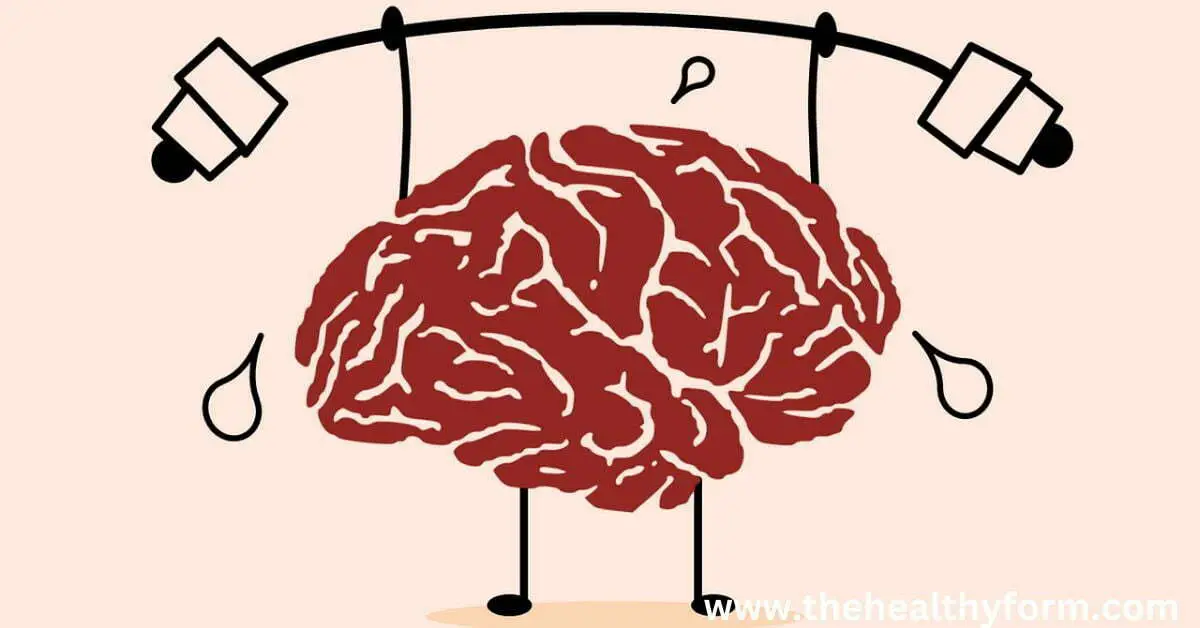The Importance of Mental Well-Being: Tips and Strategies
Discover effective ways of improving mental well-being in this comprehensive guide. Learn tips and techniques to manage stress, anxiety, and depression and improve your overall emotional health. Start your journey to a healthier mind today! It refers to our emotional, psychological, and social well-being and is crucial in thinking, feeling, and behaving. Unfortunately, mental health issues are common and can impact anyone, regardless of age, gender, or background.
Taking care of your mental health is as important as your physical health. Understanding and addressing mental health issues can improve your quality of life and maintain good mental health. Here are some tips to help you improve your mental well-being:

What are the signs of mental health issues?
Mental health issues can manifest in various ways, and it’s important to be aware of the signs and seek help if needed. Some common signs of mental health issues include:
- Persistent feelings of sadness or hopelessness
- Loss of interest in activities you used to enjoy
- Difficulty concentrating or making decisions
- Changes in appetite or sleep patterns
- Feelings of worthlessness or guilt
- Irritability or anger
- Difficulty managing stress
- Substance abuse
- Thoughts of self-harm or suicide
What are the most common mental health disorders?
Mental health disorders are common and can impact anyone. Some common mental health disorders include:
- Anxiety disorders: Anxiety disorders are characterized by persistent feelings of worry, anxiety, or fear.
- Depression: Depression is a mood disorder characterized by persistent sadness, hopelessness, and a lack of interest in activities you used to enjoy.
- Bipolar disorder: Bipolar disorder is characterized by extreme mood changes, ranging from extreme highs (mania) to extreme lows (depression).
- Post-traumatic stress disorder (PTSD): PTSD is a mental health disorder that can occur after experiencing a traumatic event. It is characterized by flashbacks, avoidance of triggers, and difficulty managing emotions.
What are the best ways to manage stress?
Stress is normal, but chronic stress can negatively affect mental and physical health. Here are some ways to manage stress:
- Exercise: Exercise can help reduce stress and improve your mood.
- Practice relaxation techniques: Relaxation techniques such as deep breathing, meditation, and yoga can help reduce stress and improve mental well-being.
- Get enough sleep: Adequate sleep is essential for managing stress. Aim for 7-9 hours of sleep per night.
- Eat a healthy diet: A healthy diet can support good mental health and help manage stress.
- Seek social support: Connecting with others and seeking support from friends and family can help reduce stress.

What are the best ways to improve mental health?
There are various ways to improve mental health; the best approach depends on your needs and circumstances. Some strategies for improving mental health include:
- Seeking professional help: Seeing a therapist or counselor can effectively address mental health issues and improve mental well-being.
- Engaging in self-care: Self-care activities such as exercising, getting enough sleep, and eating a healthy diet can help improve mental health.
- Participating in activities you enjoy: Hobbies or social activities can help improve mood and reduce stress.
- Practicing relaxation techniques: Relaxation techniques such as deep breathing, meditation, and yoga can help reduce stress and improve mental well-being.
Seeking support: Connecting with others and seeking support from friends, family, or support groups can help improve mental health and provide a sense of belonging and connection.
What are the best foods for improving mental health?
Certain foods have been shown to have a positive impact on mental health. Some good options include:
- Omega-3 fatty acids: Foods rich in omega-3 fatty acids, such as fatty fish and nuts, have been linked to improved mental health.
- Fruits and vegetables: Fruits and vegetables are high in antioxidants and other nutrients supporting good mental health.
- Whole grains: Whole grains such as quinoa and oats are high in nutrients and can help improve mental well-being.
- Lean protein: Lean protein sources such as chicken, turkey, and fish are high in protein and can help improve mood.
- Fermented foods: Fermented foods such as yogurt and kimchi contain beneficial bacteria that can support a healthy gut, which is important for good mental health.

What are the best forms of exercise for improving mental health?
Exercise has been shown to impact mental health positively and can help improve mood and reduce stress. Some good options include:
- Aerobic exercise: Aerobic exercises, such as running, cycling, or swimming, can help improve mood and reduce stress.
- Strength training: Strength training can improve mood and self-esteem.
- Yoga combines physical activity with mindfulness, which can help improve mental well-being.
- Outdoor activities such as hiking, walking, and gardening can help improve mood and reduce stress.
What are the best activities for improving mental health?
There are a variety of activities that can improve mental health. Some good options include:
- Hobbies: Engaging in hobbies you enjoy can help improve mood and reduce stress.
- Social activities: Connecting with others through social activities can help improve mental health and provide a sense of belonging and connection.
- Mindfulness practices: Practices such as meditation and yoga can help improve mental well-being by promoting mindfulness and reducing stress.
- Creative activities: Engaging in creative activities such as art, writing, or music can help improve mood and reduce stress.
What are the best strategies for improving sleep?
Getting enough quality sleep is essential for good mental health. Here are some strategies for improving sleep:
- Establish a consistent sleep schedule: Try to go to bed and wake up simultaneously every day.
- Create a relaxing bedtime routine: Establish a relaxing routine, such as reading or a warm bath, to help you wind down before sleep.
- Avoid screens before bed: The blue light emitted by screens can interfere with sleep, so try to avoid screens for at least an hour before bed.
- Keep a cool, dark, and quiet bedroom: Create a sleep-friendly environment by keeping your bedroom cool, dark, and quiet.
- Avoid caffeine and alcohol before bed: Caffeine and alcohol can interfere with sleep, so try to avoid them before bedtime.
What are the best resources for mental health support?
If you’re struggling with mental health issues, seeking help is important. Here are some resources for mental health support:
- Therapy: Seeing a therapist or counselor can effectively address mental health issues and improve well-being.
- Support groups: Support groups can provide a sense of belonging and connection and can be a helpful resource for managing mental health issues.
- Online resources: Various online resources, such as mental health apps and online support groups, can provide support and information on mental health.
- Primary care doctor: Your primary care doctor can provide information on mental health resources and may be able to refer you to a mental health professional.
What are the best ways to support a loved one with mental health issues?
If you have a loved one struggling with mental health issues, it’s important to be supportive and understanding. Here are some ways to support a loved one with mental health issues:
- Be there for them: Show your loved one that you’re there for them and that you care. This can be as simple as listening and offering your support.
- Encourage them to seek help: Encourage your loved one to seek professional help if they struggle with mental health issues.
- Offer to help with practical tasks: Offer to help with practical tasks such as grocery shopping or running errands.
- Respect their boundaries: Respect your loved one and their right to privacy.
- Take care of yourself: Taking care of your mental health is important. Make sure to prioritize self-care and seek support if needed.
FAQ about Mental Health
Here are some of the most common questions people have about mental health are:
What is mental health?
Mental health refers to a person’s overall psychological and emotional well-being. It encompasses aspects such as how we think, feel, and behave and our ability to cope with life’s challenges and stressors.
Why is mental health important?
Good mental health is essential for overall well-being and quality of life. It affects our relationships, work performance, and daily functioning. Poor mental health can lead to various problems, including anxiety, depression, substance abuse, and suicide.
What are some common mental health conditions?
Some common mental health conditions include anxiety disorders, depression, bipolar disorder, schizophrenia, eating disorders, and substance abuse disorders.
What are some signs of poor mental health?
Signs of poor mental health may include feelings of sadness or hopelessness, loss of interest in activities, changes in appetite or sleep patterns, increased irritability or agitation, and difficulty concentrating or making decisions.
What are some ways to maintain good mental health?
Some ways to maintain good mental health include staying physically active, eating a healthy diet, getting enough sleep, practicing relaxation techniques, seeking social support, and talking to a mental health professional if needed.
Conclusion
Mental health is an important aspect of overall health and well-being. Understanding and addressing mental health issues can improve your quality of life and maintain good mental health. Seek help, and don’t hesitate to contact friends, family, or professionals for support. Remember, it’s okay not to be okay, and help is available.





